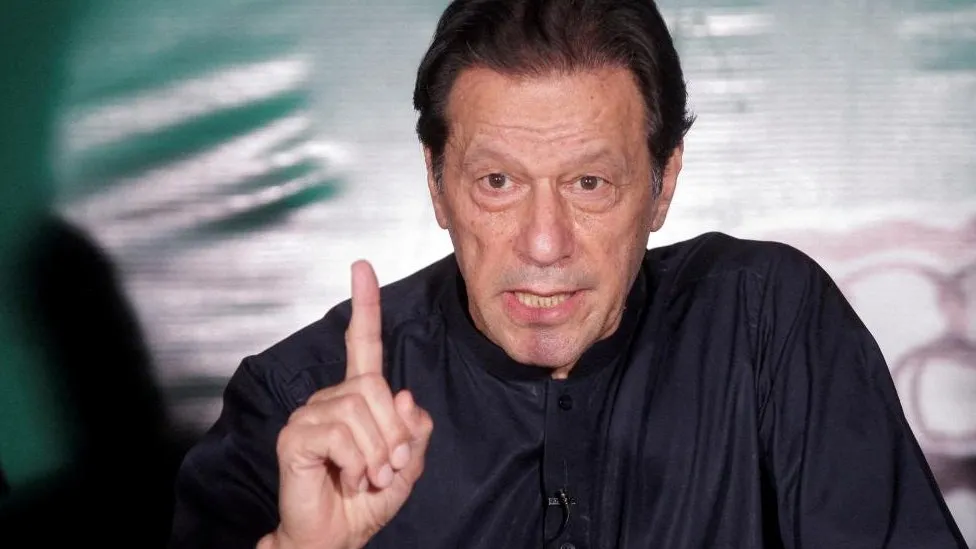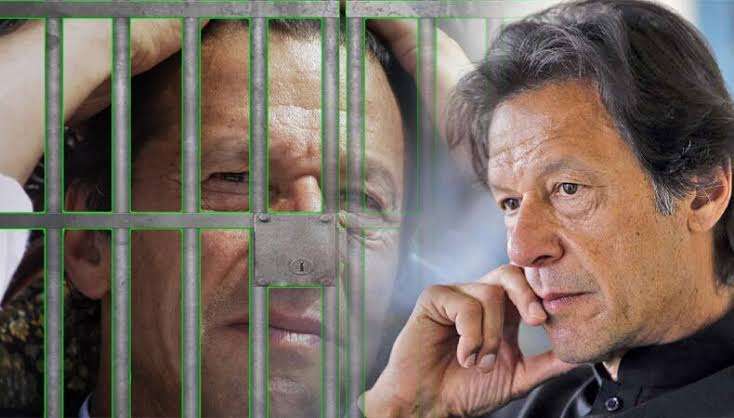What Happened?
A special court, operating under the Official Secrets Act, has sentenced former Prime Minister Imran Khan and ex-Foreign Minister Shah Mahmood Qureshi to 10 years in jail in the cipher case. This case involves a diplomatic document that Imran allegedly did not return, which the Federal Investigation Agency claims contained a threat from the United States to remove Imran as prime minister.
Impact on Elections
The verdict comes just nine days before the February 8 general elections. Despite facing a crackdown and lacking an electoral symbol, the Pakistan Tehreek-e-Insaf (PTI) party, led by Imran Khan, was contesting. However, both Imran and Qureshi have been disqualified from contesting elections for the next five years due to this conviction.

Legal Background
This is Imran’s second conviction, following a previous one in the Toshakhana case, although his sentence was initially suspended by the Islamabad High Court. Qureshi, on the other hand, faced his first conviction in this case.
Court Proceedings
The verdict was announced by Special Court Judge Abual Hasnat Zulqarnain after both Imran and Qureshi were questioned under Section 342 of the Criminal Procedure Code. Imran claimed he didn’t know the whereabouts of the cipher.
Response from PTI
The PTI condemned the trial as a “sham” and announced plans to challenge the verdict in the Islamabad High Court. They urged supporters to vote in the upcoming elections and expressed confidence that the conviction would be overturned on appeal.

Legal Challenges and Political Reactions
PTI leaders criticized the court’s proceedings, alleging bias and rushed decision-making. They vowed to continue their legal battle and urged supporters to remain peaceful.
PML-N’s Perspective
In contrast, leaders from the Pakistan Muslim League-Nawaz (PML-N) defended the verdict, asserting that Imran’s use of the classified document for political gain justified the punishment. They emphasized the importance of upholding national security laws.

Case History
The case has seen numerous legal twists, including challenges to the trial’s legality and witness testimonies. Despite attempts to delay proceedings, the court ultimately reached a decision, sparking reactions from both sides of the political spectrum.
Conclusion
The cipher case has not only resulted in significant legal consequences for Imran Khan and Shah Mahmood Qureshi but has also intensified political tensions in Pakistan ahead of the upcoming elections.
FAQs:
Q: What is the cipher case?
A: The cipher case is a high-profile scandal that involves the former prime minister of Pakistan, Imran Khan, and his deputy, Shah Mahmood Qureshi, who were accused of leaking sensitive state secrets to foreign agents through encrypted messages.
Q: When and how were they convicted?
A: They were convicted on Tuesday, January 30, 2024, by a special court set up inside a prison in Rawalpindi. They were each sentenced to 10 years in prison and fined 100 million rupees ($600,000) for violating the Official Secrets Act.
Q: How did they react to the verdict?
A: They both pleaded not guilty and denounced the verdict as a political vendetta by the ruling party. They said they would appeal against the conviction in the Supreme Court.
Q: What are the implications of the verdict for Pakistan’s politics?
A: The verdict is a major blow to Khan’s Pakistan Tehreek-e-Insaf (PTI) party, which is the main opposition party in the country. It also comes in the run-up to the parliamentary elections, which are expected to be held later this year. The ruling party, Pakistan Muslim League-Nawaz (PML-N), has hailed the verdict as a victory for justice and democracy. However, some analysts and observers have raised concerns about the fairness and transparency of the trial, as well as the potential impact on civil-military relations in Pakistan.
